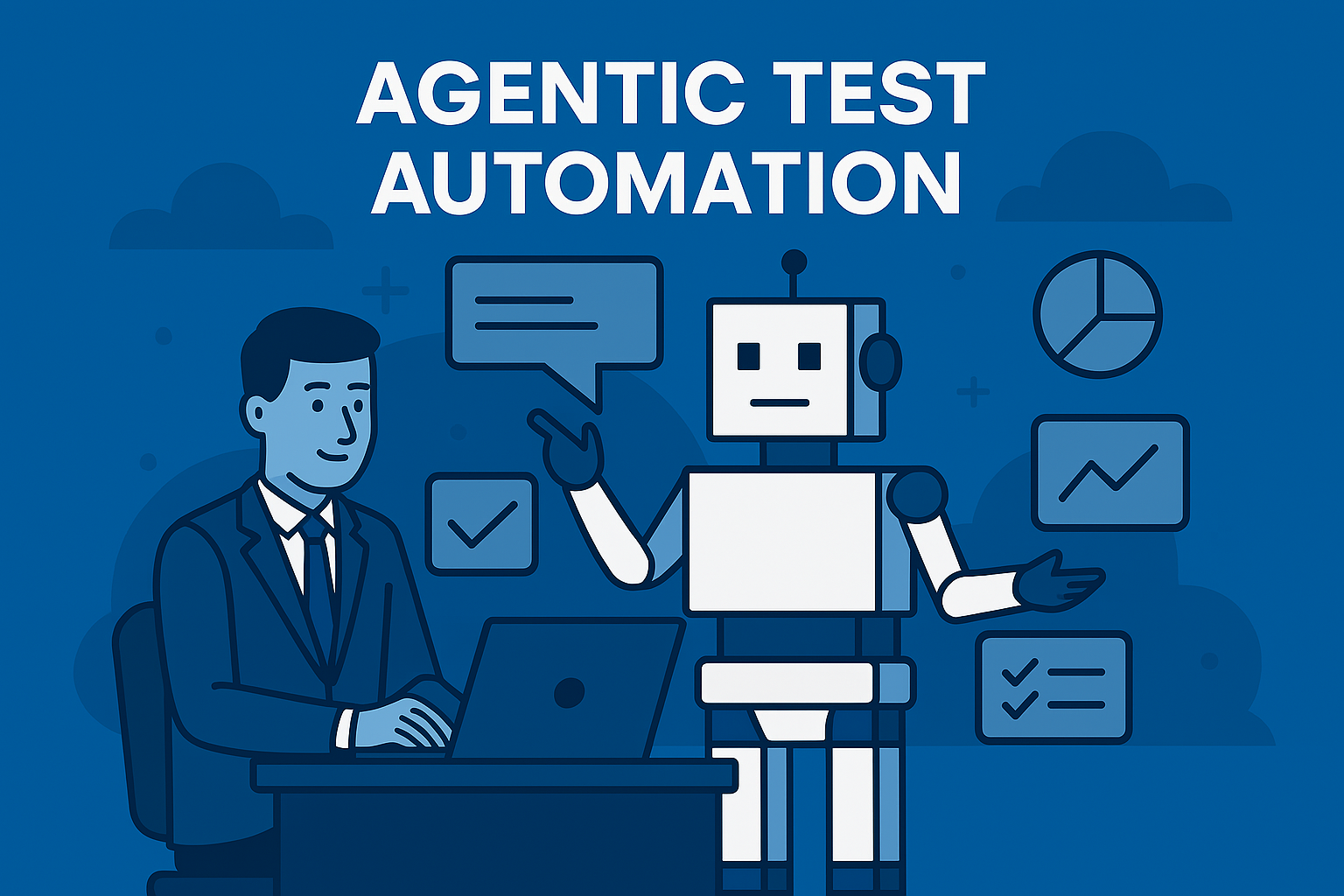
Modern software teams are releasing at breakneck speed. Alongside that velocity comes complexity: new integrations, evolving user scenarios, and a mounting risk of failure. Traditional test automation struggles to keep up. Static scripts and rigid logic can't flex with today’s pace.
Agentic test automation, especially when powered by platforms like UiPath Test Suite and UiPath Test Cloud, turns testing into a strategic advantage. It understands business goals, adapts in real time, and validates with purpose.
Legacy tests rely on static rules. A simple UI shift or schema tweak can derail entire suites.
Agentic automation delivers flexibility and resilience:
• Interprets layout and data changes contextually
• Adjusts inputs and selectors autonomously
• Aligns steps with high-level validation goals such as confirming secure checkout or verifying reconciliation
UiPath Test Cloud enhances this with Autopilot for Testers, enabling AI agents to design, execute, and self-heal tests across the lifecycle.
Agentic systems don’t just replay. They explore and replicate real user journeys across devices, data sets, and regional environments.
This enables:
• Telemetry-informed test prioritization
• Detection of edge cases and anomalies
• Seamless adaptation to local languages, regulations, and accessibility standards
UiPath Test Suite supports this with data-driven testing, cross-platform coverage, and low-code or coded authoring for web, mobile, and enterprise apps like SAP and Salesforce.
Modern applications operate within shifting ecosystems. Microservices evolve. APIs fluctuate. Integrations behave unpredictably.
Agentic validation excels in this context:
• Responds dynamically to backend or environmental changes
• Delivers root cause insights rather than surface-level failures
• Validates each build as it lands without dependency on scheduled pipelines
UiPath Orchestrator and Test Manager provide CI/CD integration, version control, and real-time monitoring to support continuous testing at scale.
Agentic automation augments testers. It doesn’t replace them.
The collaboration works like this:
• QA professionals set strategic validation goals
• Agents autonomously execute and refine testing paths
• Results are presented in formats that stakeholders understand
UiPath Agent Builder reinforces this model by enabling custom AI agents aligned with unique testing needs.
As automation becomes more intelligent, manual testing becomes more strategic.
Its continued importance lies in:
• Assessing real-world usability, aesthetics, and emotional tone
• Exploring outside scripted paths to find unforeseen behaviours
• Navigating complex, multi-system scenarios that require human judgment
UiPath Test Suite supports manual testing workflows with test case import, traceability, and ALM integration across tools like Jira, Azure DevOps, and ServiceNow.
Agentic testing begins with intelligent design.
UiPath Autopilot for Testers introduces generative capability to enhance the lifecycle:
• Creates test cases from requirements, user stories, and acceptance criteria
• Transforms manual test cases into executable workflows using automation assets and object repositories
• Uses Healing Agent to detect UI changes and automatically update selectors, anchors, and validations
The result is a continuously adaptive test suite that scales with your application and minimizes maintenance overhead.
Agentic test automation transforms validation into a strategic pillar. It enables rapid delivery, expands coverage intelligently, builds trust with users and stakeholders.
Across industries: finance, hospitality, logistics, and beyond, agentic testing powered by UiPath is more than efficient. It’s transformative
If you wish to discover more, then please feel free to reach out.
Richard Manser
Automation Lead
July 2025